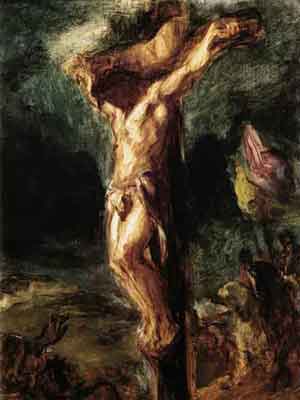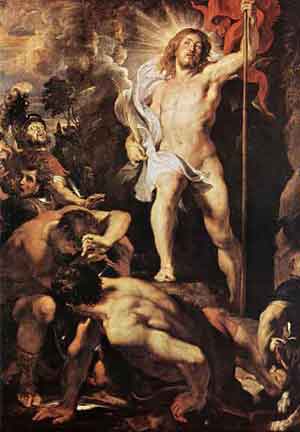On this Easter weekend two millennia ago, Judaism and Christianity broke apart on the rough sawn beam of a Roman cross — and their conflicting interpretations of the life and death of Jesus of Nazareth.
Strangely, I, a Gentile, am a follower of a Jewish rabbi. On Easter’s cross God flung open the narrow doors of Judaism to men and women of every race, welcoming all of us into fellowship with Him.
God, Himself, accomplished this marvelous thing — and it was not the first time He took matters into his own hands.
Jewish households are busily engaged in Pesach, what we Christians know as Passover, the festival commemorating God bringing Israel out of Egyptian slavery.
Pesach is rich in symbolic ritual. Matzo — unleavened bread — is eaten during the seder to remind Jews of their hurried departure from Egypt at the end of the plagues brought by God, plagues which ultimately brought suffering to Pharaoh’s household and broke his will.
During the seder, many ancient texts are read, including this from the book of Deuteronomy:
In the future your children will ask you, ‘What is the meaning of these laws, decrees, and regulations that the LORD our God has commanded us to obey?’ Then you must tell them, ‘We were Pharaoh’s slaves in Egypt, but the LORD brought us out of Egypt with His strong hand.’ — Deuteronomy 6:20-21, NLT
And then the passage is illuminated further by noting that God did not delegate this work to his angels, nor did he rely on the strength of his seraphs. (Vyotzieinu Adonai mi-mitrayim: “Adonai took us out of Egypt.” … Lo al yadei malach, ve’lo al yadei saraf: “Not by means of an angel, not by means of a seraph.” The Tension Between Law and Redemption on Passover, Rabbi Shai Gluskin.)
God himself redeemed Israel. God himself stepped into history and bent Pharaoh’s proud neck until he relented and released Israel from their bondage.
That is the story Jews have repeated every Passover since.
It’s also the story of the cross.
We were like children; we were slaves to the basic spiritual principles of this world. But when the right time came, God sent His Son, born of a woman, subject to the law. God sent Him to buy freedom for us who were slaves to the law, so that He could adopt us as His very own children. — Galatians 4:3-5, NLT
We were slaves. God himself set us free, again. The name Jesus is Greek. In Hebrew, his name was actually Joshua, which means “Jehovah (the Lord) is salvation.”
On Easter, the salvation stakes were much higher than they ever were in Egypt.
This time, God would not save his people from a tin-horn dictator, but from the lord of the earth, the father of lies, the prince of darkness.
This time, God would not save a select Jewish Diaspora, but the entire world.
Easter and Pesach both celebrate a God who stretches His hand into history to save His people.
Pesach forever reminds us how God saved the Jewish nation from death in Egypt.
Easter forever celebrates how God saved the rest of us.
Art credits: Eugene Delacroix, Christ on the Cross, 1845. Pieter Paul Rubens, The Resurrection of Christ, 1612.




Indeed, it is no coincidence that in most languages of traditionally Christian cultures (other than English and German) the word for Easter is directly or indirectly derived from the Hebrew Pesach.
Blessed Pascha!
Hey, this is really good. Thank you for this – I’m going to print it out. 🙂
Oh, it gets even better.
In Luke 9 Moses and Elijah appear with Jesus in His transfiguration. In verse 31, they speak of “his departure, which he was about to accomplish at Jerusalem.”
In Greek, the word for “departure” is literally “exodus,” and the word translated “accomplish” is a frequent NT word more commonly translated “fulfill.” So, another way of rendering Luke 9:31 is that Jesus was speaking of the exodus He was going to fulfill (of which Moses’ was a type or foreshadowing).
Just as God used Moses to lead His people out of slavery and into freedom, in a more profound and lasting way Jesus is leading His people out of slavery and into true freedom and life — through a new Exodus.
It gives me goosebumps.